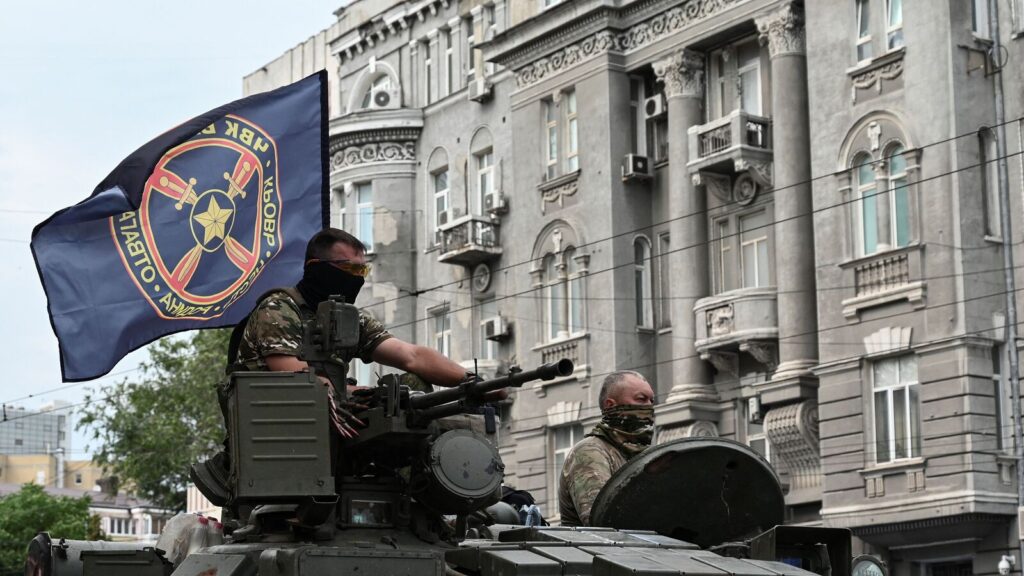This article explores the impact of technology on military operations. It discusses how technology has revolutionized communication and coordination, intelligence gathering, weapons and combat systems, logistics and supply chain management, cybersecurity, and information warfare. It also acknowledges the ethical and moral considerations that arise with these technological advancements. The article emphasizes the importance of responsible and ethical use of technology in shaping the future of warfare. Overall, technology has greatly enhanced the effectiveness and efficiency of armed forces, but it is crucial to strike a balance between military capabilities and ethical concerns.
From Code to Combat: The Impact of Technology on Military Operations
Introduction
Technology has revolutionized every aspect of human life, and military operations are no exception. From mechanized warfare to satellite communication, technology plays a crucial role in enhancing the effectiveness and efficiency of military forces. With the advent of digitalization, the integration of technology into military operations has reached new heights. This article explores the impact of technology on military operations, showcasing how it has transformed the way armies communicate, gather intelligence, plan strategies, and engage in combat.
Communication and Coordination
Effective communication is critical to military success. In the past, communication in the battlefield was cumbersome and often relied on physical signals such as flags or messengers. However, modern technology has revolutionized this aspect, allowing troops to communicate seamlessly even in hostile environments. High-frequency radios, satellite communication systems, and encrypted messaging platforms have greatly improved the speed and reliability of military communication. This enables commanders to coordinate operations in real-time, facilitating effective decision-making and enhancing overall military efficacy.
Intelligence and Reconnaissance
Gaining accurate and timely intelligence is vital for effective military operations. Technology has transformed the way armies gather and analyze intelligence, providing commanders with a wealth of valuable information. Unmanned Aerial Vehicles (UAVs) or drones equipped with advanced sensors and cameras can perform reconnaissance missions, allowing military forces to gather information without putting personnel at risk. Furthermore, satellite imagery, advanced radars, and advanced data analytics help in monitoring enemy activities, identifying potential threats, and planning operations more efficiently.
Weapons and Combat Systems
Perhaps the most impactful area where technology has revolutionized military operations is in the development and deployment of advanced weapons and combat systems. From precision-guided munitions to unmanned combat vehicles, technological advancements have greatly enhanced the lethality and accuracy of military forces. Satellites and GPS systems allow for precise targeting, reducing collateral damage and civilian casualties. Advanced cyber warfare capabilities also enable nations to engage in non-traditional warfare, disrupting enemy networks and disabling critical infrastructure without deploying traditional forces.
Logistics and Supply Chain Management
Efficient logistics and supply chain management are crucial for any military operation. Technology has played a key role in streamlining these processes, ensuring troops receive the necessary resources when and where they are needed. Advanced tracking systems, inventory management software, and autonomous vehicles have improved the speed and accuracy of logistics operations. Additionally, 3D printing technology enables troops to produce spare parts and supplies on the battlefield, reducing reliance on traditional supply chains.
Cybersecurity and Information Warfare
In the digital age, cybersecurity has become a critical aspect of military operations. As militaries increasingly rely on interconnected systems, the vulnerability to cyber-attacks increases exponentially. Protecting classified information, defending critical networks, and countering digital threats have become essential components of modern warfare. Furthermore, information warfare, including propaganda, disinformation campaigns, and psychological operations, have gained prominence as nations leverage technology to influence public opinion and undermine enemy morale.
Ethical and Moral Considerations
While technology has undoubtedly enhanced military capabilities, it also raises ethical and moral considerations. The rise of autonomous weapons systems, for example, poses challenges in terms of accountability and adherence to ethical guidelines when conducting military operations. Additionally, the potential for misuse of technology by both state and non-state actors necessitates a comprehensive approach to ensure ethical and responsible use.
Conclusion
Technology’s impact on military operations cannot be overstated. From revolutionizing communication and coordination to transforming intelligence gathering and combat systems, technology has significantly enhanced the effectiveness and efficiency of armed forces. However, it is essential to strike a balance between advancing military capabilities and addressing the ethical and moral challenges that arise with technological advancements. Ultimately, the responsible and ethical use of technology will shape the future of warfare, ensuring that it remains a tool to protect and secure rather than harm.
